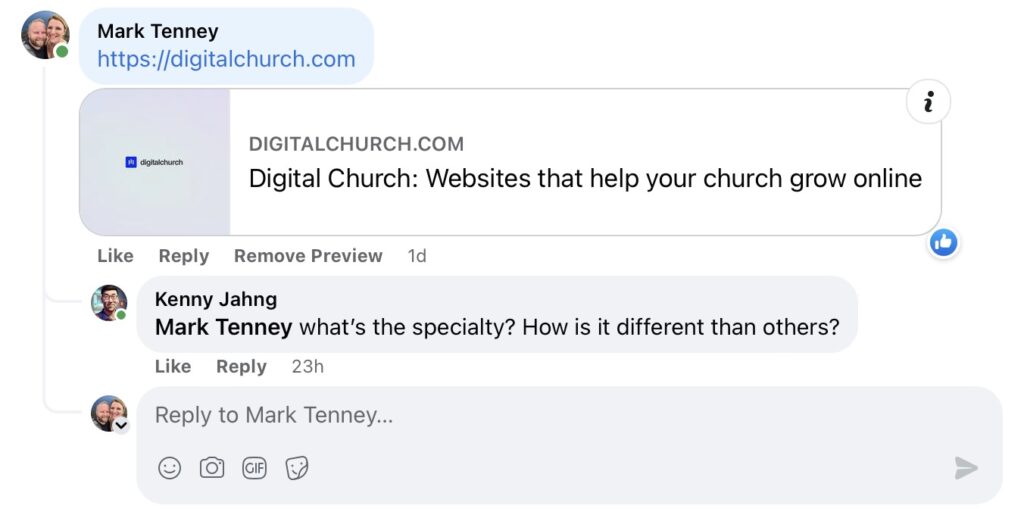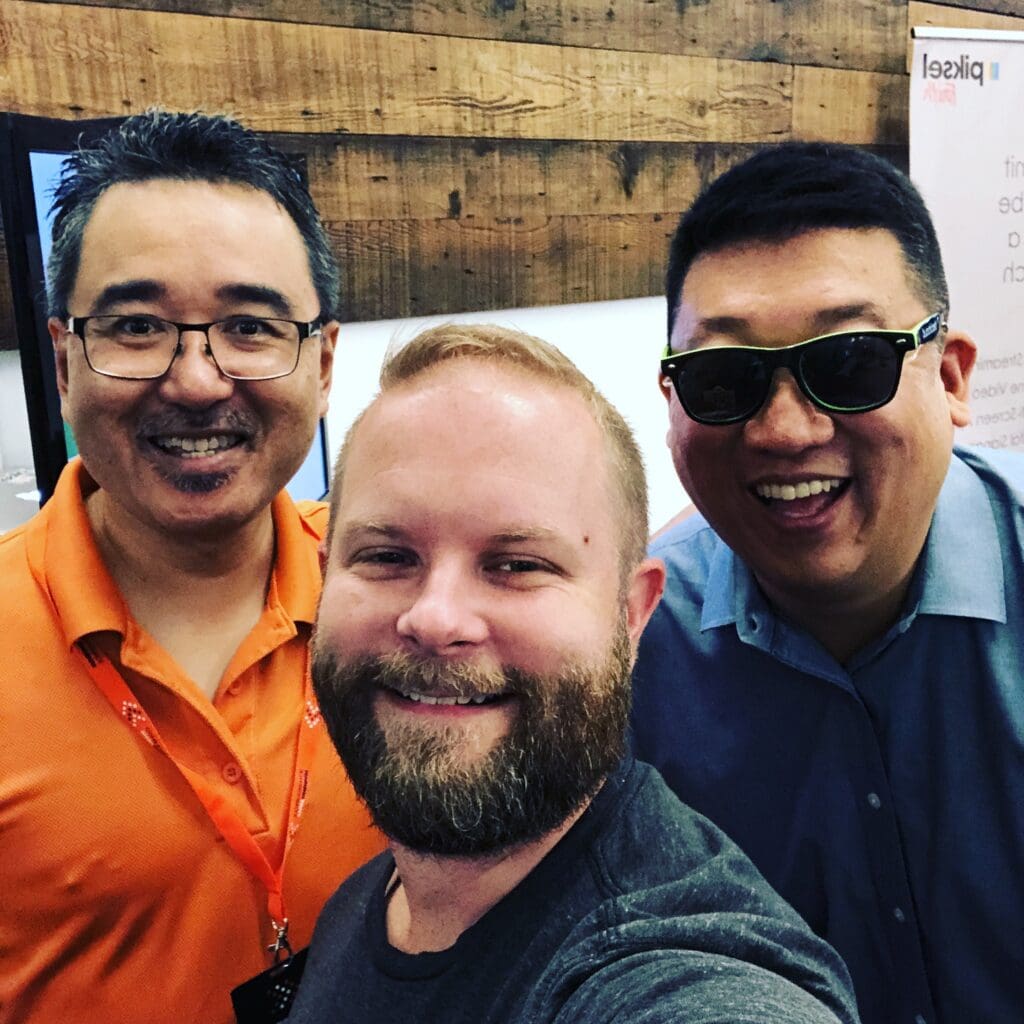Recently, I was talking to my friend Kenny Jahng on Facebook about Digital Church and he asked me a few questions that really got me thinking about why we are building this platform for churches. He asked me what our specialty was, and how Digital Church is different from the other church website solutions that are available.

The pastors we work with understand how easy it is to get lost in the weeds. In fact, one of the most important things we do for the clients that we work closely with in Digital Church Agency is to walk them through a discovery process that helps them get out of the weeds and think objectively about their vision and strategies for church growth. But as a business owner, I need conversations like this one to help me do the same thing from time to time. Here are some questions that came up as I was processing the one my friend Kenny asked me.
What do we believe about the future of the church?
The Church is (and always has been) about the intersection of God and humanity. (i.e. Jesus, who is both.) His presence on the Earth is what started the Church as we know it today, and ever since it began, the church has wrestled with how to find its place in the current culture. If you take some time to study church history, it won’t take long to see it.
But the future is shifting quickly. With VR and AR (Virtual Reality and Augmented Reality) coming to the forefront of technological hardware, we’re being more immersed in a digital world. With artificial intelligence and machine learning (AI/ML) growing at such a rapid pace, culture is moving more rapidly than it ever has before.
So the Church has to adapt. It has to remain relevant to the current cultural trends and utilize the latest technology in order to keep up with the changing landscape. We believe that the Church needs digital pastors who can communicate in these new mediums. So we’re building a platform for that future.
What does a future church platform look like?
When we started Digital Church in 2014, we knew a day would come when churches needed to be more connected online. In fact, the church needed to be able to provide a full experience of their faith community online. The obvious ways to do that include things like live streaming, sermon publishing with video and audio, and online giving. But we really can’t stop there. Things like small groups, spiritual development and learning, devotional plans, Bible studies… all of those need to be available and nurtured online.
When the pandemic hit in 2019, we knew that we were right about that. In the course of just a few weeks, nearly every church in the world had closed its doors. The only option was online ministry. And most churches struggled just to do the basics. It took everything they had to keep putting sermons out there for their people. Things like small groups, discipleship classes, special events and times of fellowship… those things all ceased to exist. And when churches opened back up, many of them had smaller congregations than they did pre-pandemic.
Think about this: list everything your church does. The list you end up with would probably be pretty long. And all of those things are important enough for you to spend time on them. So we’re asking the question “How can we bring everything that churches do online?”
Will digital church replace physical church?
We’re not suggesting that online ministry is better than in-person ministry. And we aren’t suggesting that you should close your physical doors and only do ministry online. But we also believe that you should consider online ministry as an environment that is just as important as physical ministry.
Digital Church places a strong importance on getting people in the doors of your church. In fact, we have a visitor flow system built into our templates that walks your in-person guests through your website in a way that is designed to get them to be fully connected to your church. (We talk pastors through this system all the time over zoom calls, so feel free to book a free call with us if you’d like to know more about that.) We believe that in-person connections are important, and number one purpose of your church website is to get new people connected to your church. But supporting that main initiative are multiple layers of connections and engagement.
A truly full-featured Digital Church should be able to sustain all the same connections and interactions that someone could experience at an in-person location. The true test of our platform is when churches launch fully online, like Rhythm Church did in Chicago during the pandemic. Their experience was 100% online at launch, which later prepared them to start an in-person worship experience.
All of this leads me back to the question that Kenny asked.

What makes Digital Church different from the other church website providers?
We are building a single platform that can provide an entire online ministry toolkit. It can enhance in-person churches or fully-power digital churches. Our users can publish sermons, embed livestream feeds, share physical and online events, facilitate small groups, receive and respond to prayer requests, share stories and testimonies, and engage in discipleship and learning. But more important than all those strategies and tactics is the purpose. We want to see the Good News of Jesus change lives online, and we believe the best way to do that is to empower churches to thrive in online ministry.

